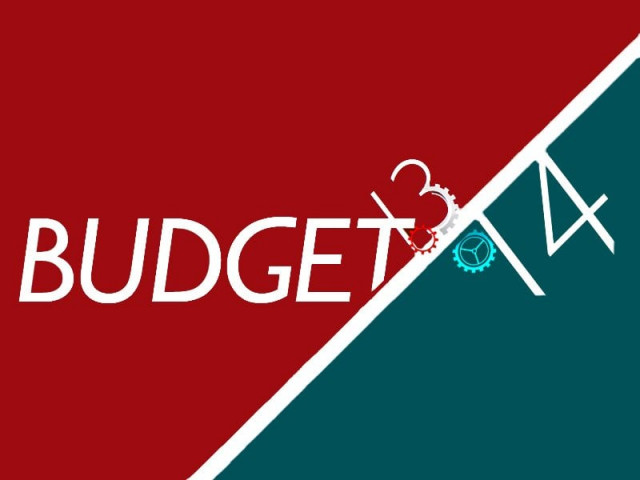PML-N’s pro-business budget evokes mixed responses from multinationals
MNCs praise tax measures aimed at broadening tax net, but express concern over some other steps.

Instead of bringing new sectors in the tax net, the govt is taxing those who already pay taxes, says an MNC official. PHOTO: FILE
The budget proposals made by Pakistan Muslim League - Nawaz’s (PML-N) pro-business government seem to have received a mixed response from the multinational companies (MNCs) operating in Pakistan – the MNCs lauded tax measures that are aimed at broadening the tax net, but expressed concerns over specific measures.
“They [the government] didn’t tax agricultural produce,” said an official who wished not to be quoted. They should have brought new sectors in the tax net instead of taxing those already paying taxes, the official said.
Skeptic about the successful implementation of the proposed tax measures, the industry sources as well as analysts, The Express Tribune spoke to, termed the budget document as neutral and balance with a margin for improvement.
“We find the budget proposals well below our expectations,” said Abdul Aleem, General Secretary of Overseas Investors Chamber of Commerce and Industry – an umbrella association for the MNCs operating in the country. “The increase in sales tax and turnover tax will impact our members negatively,” he said.

According to the budget document, which was presented by the Finance Minister Ishaq Dar on Wednesday, the general sales tax will increase from 16% to 17% and the turnover tax will increase to from 0.5% to 1%.
The increase in the rate of turnover tax, Aleem said, will have a negative impact on MNCs especially on large chemical companies that are operating in a very competitive market and that, too, on a low profit margin. “The real impact will be more than 1% because of a multiplier effect,” he said.
On the side, Aleem appreciated the 1% reduction in the corporate tax rate, saying it was a positive move by the government – the corporate tax rate would be reduced from the current 35% to 30% over the next five years.
He pointed out another proposal, which he considered was mistake. “They have reduced the initial depreciation on new investment in manufacturing from 50% to 25%, which doesn’t make sense for a pro-business government that wants to incentivise new investment,” he said. Explaining, he said, higher initial deprecation helps improve MNCs cash flows and ensure quicker recovery for the money invested. This should be corrected, he said.
Although skeptical about the implementation, Aleem said the government has taken good steps towards broadening the tax net. If they can bring the fiscal deficit – currently hovering at 8.5% of the GDP – down to the proposed 6.3%, it will be encouraging, he said
Keeping in mind the current needs of the country, according to an MNC official, increasing power tariff will increase the cost of doing business but if one looks at the big picture, solving circular debt is more important. It will spur economic growth, he added.
Although there are concerns regarding implementation of these proposals, the official said, the MNCs are bullish about the budget.
By contrast, Deputy Head of Research at AKD Securities Ayub Ansari said he would not call it a positive budget and rather consider it a neutral budget because the proposed increase in GST and electricity costs is inflationary.
Ansari, however, said the consumer demand may not have any impact because most of consumer goods sold in the country are not discretionary – that is people have to buy these any way.
The analyst said that the budget may not have direct positive impact on MNCs but if these measures can spur economic growth, the industry will benefit. It is, therefore, a very balance budget under given circumstances, he said.
They have set some realistic targets and there is a sense of sincerity, it is initially a positive sign, Ansari said.
Published in The Express Tribune, June 17th, 2013.
Like Business on Facebook to stay informed and join in the conversation.


















COMMENTS
Comments are moderated and generally will be posted if they are on-topic and not abusive.
For more information, please see our Comments FAQ